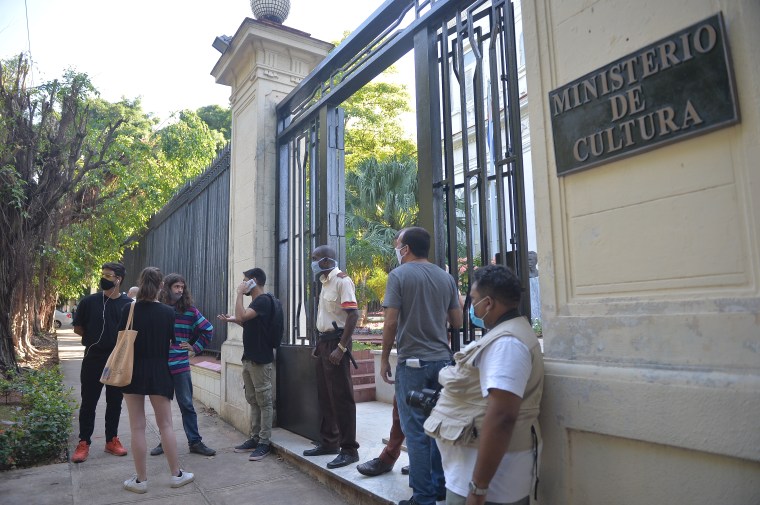Miami, January 29, 2020 — Cuban authorities should stop disrupting internet access in the country and allow journalists to cover protests freely, the Committee to Protect Journalists said today.
On January 27, starting at around 3:30 p.m. internet access was shut down on the island for approximately two hours, according to news reports and several local journalists posting on Twitter. To get around the shutdown, journalists use VPNs, according to one local reporter who spoke to CPJ via messaging app on the condition of anonymity, citing security concerns.
The shutdown happened as authorities were beating and detaining protesters at a demonstration for free expression and artistic freedom outside the Ministry of Culture in Havana, according to news reports.
“One day, Cuban authorities will learn that the only way to avoid demonstrations for free expression is to allow people, including journalists, to express themselves freely,” said CPJ Central and South America Program Senior Researcher Ana Cristina Núñez. “Until Havana stops impeding access to the internet and obstructing the work of the press, Cuba will continue to be an outlier among nations.”
Even after the internet was restored on January 27, access was intermittent throughout the rest of the day, according to the journalist, as well as another reporter who spoke with CPJ via messaging app on the condition of anonymity, also citing security concerns. As of January 28, it was fully accessible, they said.
Also on January 27, Luz Escobar, a reporter for independent Cuban news website 14yMedio, wrote on Twitter that national security agents stationed outside her home had prevented her from leaving. Escobar told CPJ via messaging app that as of yesterday the agents were still there; CPJ tried to reach her via messaging app today and she did not respond. In recent years, Cuban authorities have prevented independent journalists, including Escobar, from working on certain dates, including days when protests are scheduled or expected, either by detaining them or stopping them from leaving their homes, as CPJ has documented.
CPJ emailed the National Revolutionary Police, the Ministry of the Interior, the Ministry of Culture and ETECSA, the Cuban telecommunications regulator, for comment, but did not receive any responses.
January 27 was not the first time authorities in Cuba restricted internet access to obstruct the spread of information about protests. In November 2020, authorities blocked social media sites and messaging apps, including Facebook, Twitter, WhatsApp, Telegram, and Instagram, amid protests following the arrest of artist Denis Solís of the San Isidro Movement, a local freedom of expression and artistic freedom group, as documented by CPJ.
Cuba ranked 10th on CPJ’s most recent 10 Most Censored list, published in 2019; it was the only country in the Americas to be included.
